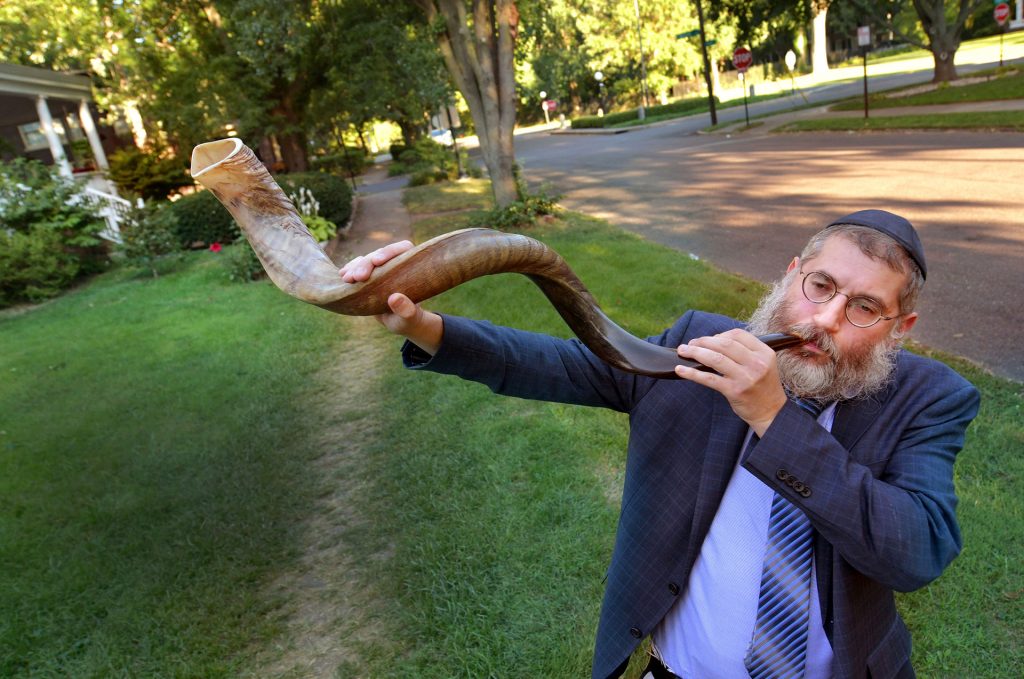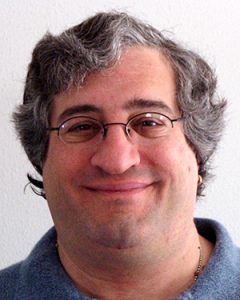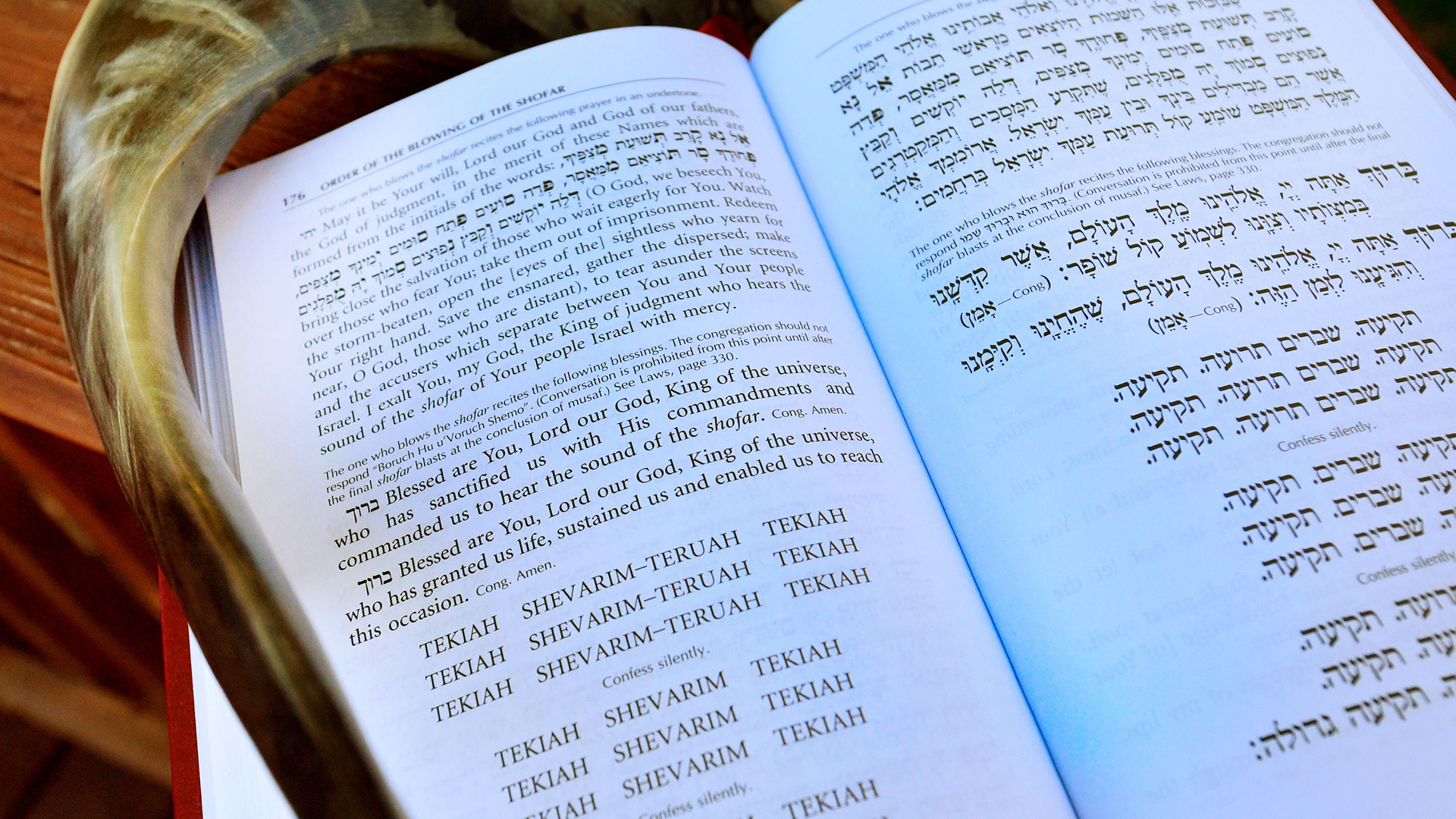Central Illinois has a small but energetic Jewish population, with two synagogues and a faith that provides a roadmap for how to act
The Peoria area’s small Jewish community, estimated in the hundreds, differentiates itself by being a diverse community despite its size, with observant and non-observant Jews, mixed religion families, and college students who make Peoria and Bradley University their temporary home until they graduate.
Susan Katz is the longtime executive director of the Jewish Federation of Peoria, which was created in 1933 and incorporated in 1947. The Federation serves the Peoria area Jewish community with social, educational and cultural programming, and provides for those in need.
Then there’s the Chabad Jewish Center of Peoria and Bradley University, led by Rabbi Eli Langsam, whose daily goal is to get “one more Jew to do one more mitzvah (good deed or act of kindness), and make every Jew here feel like a part of the Peoria Jewish family.”

Langsam is a representative of Chabad Lubavitch, a New York-based group that focuses on Jewish outreach.
Bryna Milkow is the rabbi at Congregation Anshai Emeth, which is affiliated with the Reform Judaism movement “but serves a broader audience,” she said.
Anshai Emeth is the largest Jewish congregation in Peoria, with about 150 members, “but numbers aren’t important,” Milkow said. “If we put on a program and two people participate, it’s important to them.”
Congregation Agudas Achim, established in 1886, is Peoria’s only traditional Jewish congregation and the largest traditional congregation in Illinois outside the Chicago area.
It bills itself as offering a “unique blend of small-town warmth and big-city Jewish identity for its members and visitors.”
Adrianne Abrams is the director of Peoria Hebrew Day School, which has offered preschool through eighth-grade students a dual secular and Jewish education for more than 50 years. Students at the school learn Hebrew and are taught Jewish morals, values, history and tradition.
Meanwhile, Hillel, the Jewish campus organization at Bradley University, serves the 125 to 175 Jewish students who attend Bradley each school year.
“We help Jewish college students at Bradley make the transition from high school to college and their life beyond college, and walk alongside them and guide them as they figure out how being a Jew plays a part in their lives,” said Matt Lorch, executive director of the Hillel chapter.
Hillel serves the needs of Jewish college students by being a combination “synagogue, community center, federation, tutoring center, food bank, crisis center, youth group, camp, dining hall and anything and everything else the students need while they are on campus,” said Lorch.
‘People want to know how they can live a Jewish life here’
Peoria area Jewish leaders say there are advantages to living in a small Jewish community.
“Being small helps us at the federation know our community members. Who they are, what their needs are and how we can best serve them,” Katz said.
Those relationships, she said, often lead to collaboration across congregations and organizations to put on events that bring everyone in the Peoria area Jewish community together.
Abrams said her move from a major metropolitan area with a large Jewish community to Peoria was a culture shock, but a positive one.
“Because the Jewish community here is small, it’s very tightly knit. Everyone knows everyone else,” she said. “In the short time we’ve been here, our family has developed stronger bonds with other Jewish families than we ever had living in a large Jewish community.”
“You need to seek out a place to connect with other Jews because people want to know how they can live a Jewish life here,” added Langsam.
Milkow calls the Peoria area Jewish community “small, caring, devoted, and proud but not pretentious. There’s a place for everyone here, whether you attend services once a year or once a week, or come from a family with different religions.”
Commandments that ‘strengthen your connection to God’
So what exactly is Judaism? According to Langsam, that it’s merely a religion or a culture are misconceptions.
“Judaism is a way of life,” he said, governed by 613 commandments that make up the code of Jewish law, believed to be given by God to the Jewish people.
There are 248 positive commandments and 365 negative commandments. These commandments connect those who follow them to God, Langsam said, and bring all Jews into the Jewish family.
“We don’t need to figure anything out when it comes to living our lives. It’s all there for us,” Langsam said. “These laws tell us what to eat and what not to eat, how to get dressed, how to talk … everything.”
A law that prohibits Jews from driving on Shabbat — the sabbath, from sunset Friday to sunset Saturday — and holidays requires Langsam to walk an hour and 15 minutes from his home to Bradley University to meet with students.
“I take Bus No. 11 on those days. My two feet,” he said.
Langsam emphasized that the Jewish way of life isn’t an all-or-nothing proposition, “but every commandment you follow strengthens your connection to God.”
The rabbi gave the example of a Jew who eats a pork sandwich — not a kosher food — then hears the ritual blowing of the shofar, or ram’s horn, on Rosh Hashanah, the celebration of the start of the Jewish New Year.
“Eating that sandwich doesn’t take away the commandment of listening to the blowing of the shofar,” he said. “They don’t cancel each other out.”
Peoria has made local Jews ‘feel at home’
The specter of anti-Semitism hangs over every Jewish community, but Jewish leaders here say it hasn’t been a pervasive problem.
Lorch said the incidents he’s seen are mostly just ignorance, like someone displaying a swastika on a car or saying the Holocaust wasn’t as bad as it was made out to be.
“Of course, I also know that someone who experiences anti-Semitism may have a difficult time sharing it,” he said. “They may want to hide it, rationalize it, say it was something else, or say, ‘Who cares?’”
Abrams said in the two years she’s lived in the Peoria area, “we haven’t had a single negative interaction as a result of our Judaism. The community has made us feel at home.”
Meanwhile, the Jewish community specifically “has received us like we have always been here, and our neighbors have embraced us and our differences, using it as an opportunity to teach their children about diversity and accepting that other cultures have different practices and beliefs. The majority of the people in the Peoria community are friendly and outgoing.”
Despite feeling safe here, Jews remain vigilant.
“Security in any Jewish community is a priority,” Katz said. “We’re thankful for the assistance we receive from the Peoria Police Department.”





